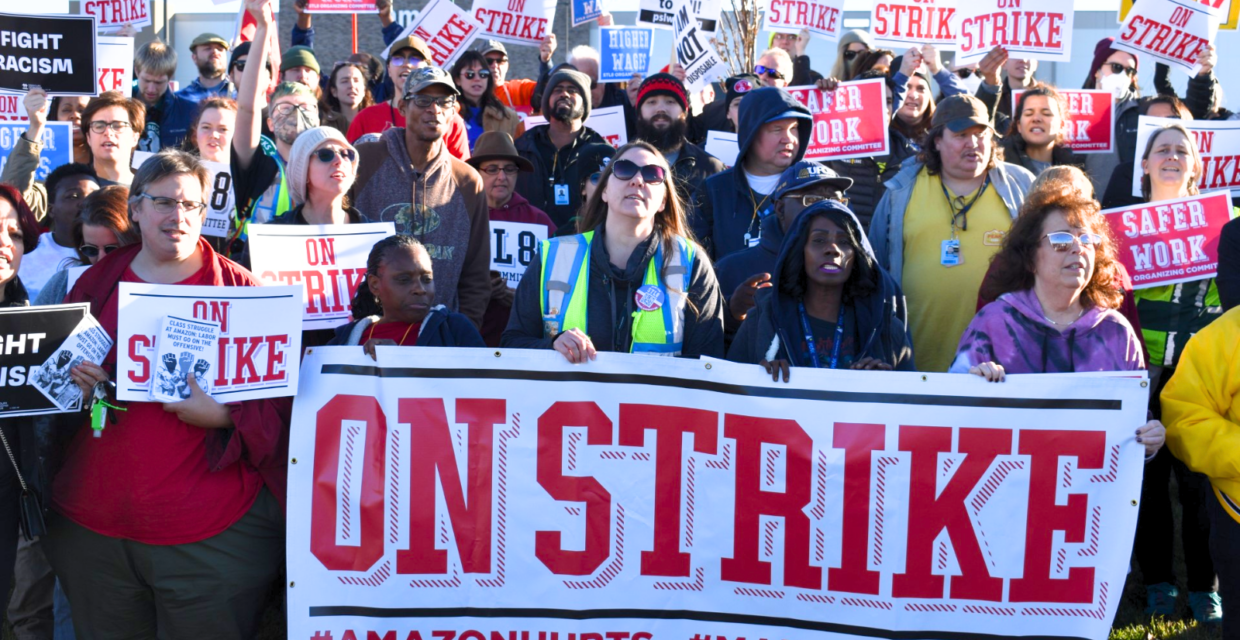
Nationwide—The U.S. economy added 227,000 jobs in November and the unemployment rate ticked up to 4.2%. The Bureau of Labor Statistics also reported that employment in transportation equipment manufacturing rebounded in November, largely because 38,000 manufacturing workers, including Machinists Union members employed at Boeing and at Textron Aviation, returned to work after protracted strikes. Boeing workers won a 38% pay increase over four years and improved retirement benefits, while Textron workers achieved a 31% raise over five years and caps on increases to health insurance premiums, among other gains.
“Strikes are a powerful way for workers to challenge unfair workplaces, low pay, hazardous work environments, and other harmful employment practices,” said Rebecca Dixon, president and CEO of the National Employment Law Project (NELP). “Yet workers and their families often make substantial economic sacrifices to go on strike: Workers miss paychecks and can even lose their health coverage. In the wake of anticipated threats to working people under the Trump administration, one way state leaders can take action to support workers’ rights and provide greater economic security is by enabling workers to qualify for unemployment insurance benefits when they are on strike.”
State leaders can support workers’ rights by enabling workers to qualify for unemployment insurance benefits when they are on strike.
In nine states, workers are eligible for unemployment benefits while on strike if the labor dispute resulted from the employer breaking either employment laws or the union contract (or both). In addition, New York and New Jersey workers who are participating in a strike are eligible for unemployment benefits regardless of the cause of the strike. Researchers find that providing unemployment benefits to striking workers has minimal cost. At the same time, strikes can produce benefits that extend far beyond the workers striking: For example, the 2023 strike by nurses in New York City led to an agreement that is being used to hold hospitals accountable for safe staffing to protect vulnerable babies in the neonatal intensive care unit.
A recent policy brief from NELP pointed out that strikes have long been a tool of survival for communities of color, as well as a critical way to advance both workplace fairness and civil rights. Making striking workers eligible for unemployment benefits is a step toward racial equity.
In November, the unemployment rate among Black workers was 6.4%, compared to 5.3% among Latinx workers, 3.8% among Asian workers, and 3.8% among white workers. A rise in the unemployment rate for Black workers, especially Black women, may be a warning sign for the direction of the economy. Continuing disparities in unemployment rates are a result of structural racism in the U.S. labor market, including persistent occupational segregation. Union contracts won by workers who strike or threaten to strike have been instrumental in addressing unemployment disparities by protecting against discrimination in hiring and in termination.
The Unemployment Insurance Modernization and Recession Readiness Act, introduced by Senators Ron Wyden (D-OR) and Michael Bennet (D-CO) and Representative Don Beyer (D-VA), would extend unemployment benefits to striking workers nationwide in cases where the strike resulted from the employer breaking either an employment law or the union contract. The bill also sets additional nationwide standards for unemployment insurance, mandating that states offer at least 26 weeks of unemployment benefits, raising benefit amounts to replace a greater share of workers’ prior earnings, and increasing coverage for part-time workers, temp workers, and workers whose earnings fluctuate over time. The bill also establishes a new, federally funded Jobseekers Allowance to support jobless workers who would not otherwise be covered by unemployment insurance and modernizes the Extended Benefits program that makes additional weeks of unemployment benefits available in times of high unemployment. State policymakers across the country should also act to improve their state unemployment insurance systems to better support workers and the economy.
###


